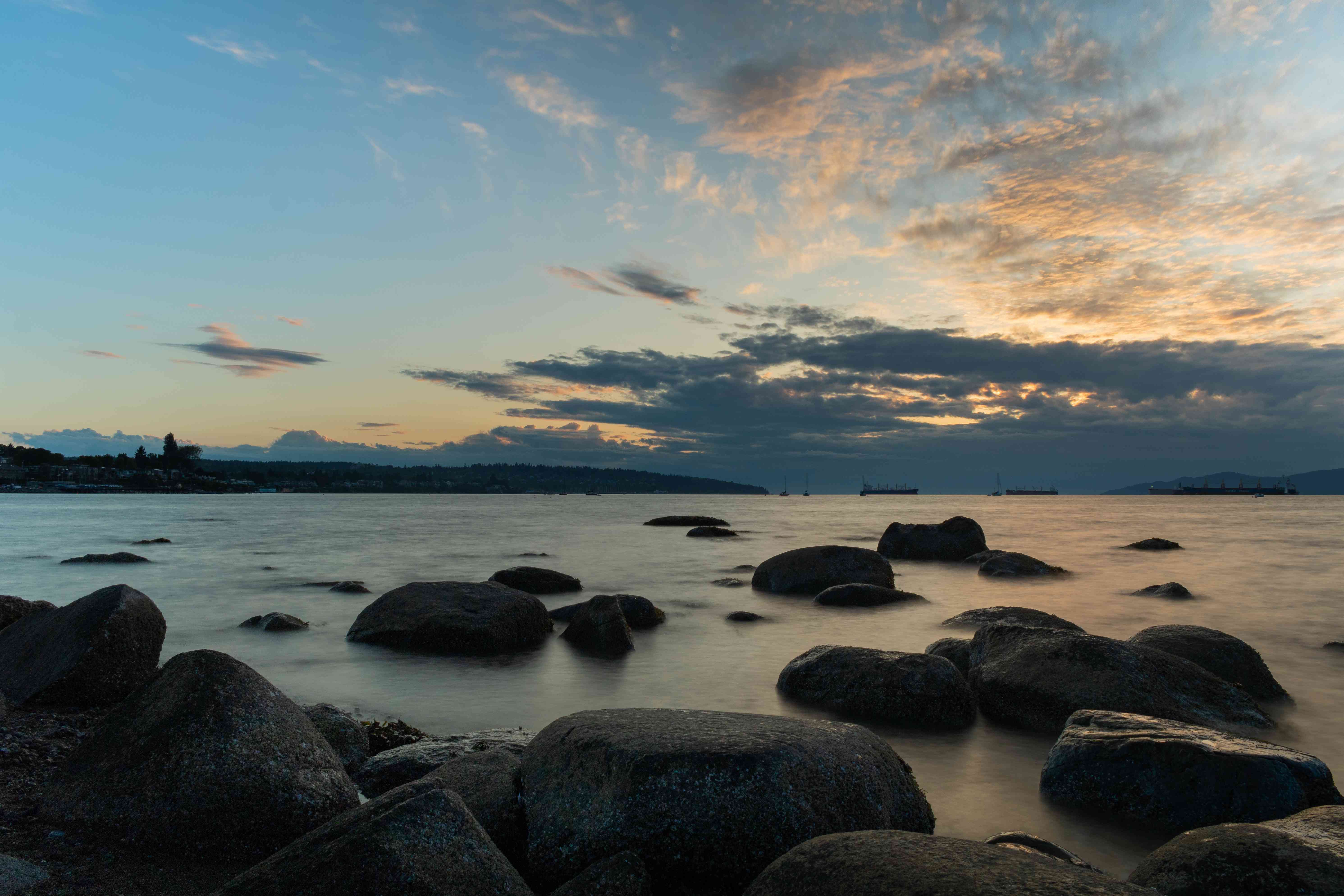Personal Health
Welcome to my website dedicated to personal health. The goal of the site is to provide a calming space to develop and practice your self-care routine with.
Overview
As you read below you will find exercises and resources for working
on your self-care routine. If you don't already know,
self-care is the practice of taking action to preserve or
improve your health and wellbeing. Practicing self-care allows you
to live healthier and happier, and it better prepares you for
whatever life throws at you.
The self-care content below
ranges in topic and you are welcome to explore the topics that
interest you most. That being said, I encourage you to look at every
section because you may find something new that you enjoy by
stepping outside of your comfort zone. One last note is that
throughout the site you will see landscape photos as visuals. These
are photos I have taken and added to the site to liven it up.

Deep Breathing
One of the easiest ways to manage stress and relax is to perform
deep breathing. It helps you to clear your head and be able to take
a moment disconnected from the stressors of the outside world. All
it takes is a few minutes of breathing and you will feel the
benefits of the exercise. During the exercise it is important to
focus only on your breathing and ignore any distractions that try to
creep in.
I encourage you to use the transitioning
background as a guide for your deep breathing (other resources
if you prefer). I recommend breathing in for 4 seconds, holding for
4 seconds, and then breathing out for another 7 seconds. Blue
transitioning to pink indicates inhaling, stationary pink is for
holding, and pink transitioning back to blue is for exhaling.
To start your breathing, press the play/pause button at the bottom right of your screen!

Time Management
This has been one of my strongest skills since high school when I realized the importance of managing my time. Everyone has their own system for organizing tasks, but mine is purely digital since I prefer to minimize any physical items needed in my daily life. I can still appreciate people who like to make physical lists and get the satisfaction of crossing off items once they are complete. Below I'll list some of the tools I use to organize my life and some tips on how to use similar tools to create your own system of organization.
- Calendar
- I would strongly recommend using a digital calendar that way you can add events quickly anywhere you go and it makes sharing events as well as downloading/syncing events from online easier
- My calendar of choice is Google Calendar as it integrates well with my devices but there are countless other options
- Regardless of whether you are using a physical or digital calendar, get into the habit of adding events as soon as you can so that you never miss one
- Task Manager
- Not everyone wants to use a task manager/task list but I highly recommend it in addition to a calendar
- Using a physical list or an app for tasks makes it easy to organize current and upcoming tasks that don't belong on a calendar
- Like the calendar, it is only effective if you are adding tasks right away so that they aren't forgotten
- A physical system can be totally customizable, but if you choose to go digital then there are some recommended options:
- Google Tasks: great as a beginner task app since it is basic but has the necessary features to get started - plus it integrates with Gmail
- Apple Reminders: this is a popular choice among iPhone users as it is built-in and easy-to-use - it does lack many features compared to its competitors though
- TickTick: my personal app of choice, it is fully loaded with all sorts of ways to organize and prioritize tasks - I would only recommend this to people who are wanting more features over simplicity
- Other options
- Tips
- Once you are using one or both of these tools its important to get into the habit or regularly organizing and prioritizing tasks
- Make sure to be concious about both short-term and long-term tasks and plan for how to approach both
- Be realistic with what you will accomplish in a day and pick the items ahead of time that are needing to be completed versus what are bonus things to finish

Sleep
Getting good sleep is important for staying energized and engaged in everyday life. It is easy to fall into a trap of sleeping less in order to fill that time with other things, but this is extremely detrimental to your health. I've added a great podcast episode here from The Happiness Lab that discusses what can result from an extreme lack of sleep as well as strategies to improve your sleeping habits.
Here are some of the tips I have found helpful to getting a better sleep inspired by the podcast:
- Create a consistent bedtime routine for yourself that gets you mentally and physically prepared to sleep
- The length is up to you, but somewhere between 15 and 45 min is best
- You should, to the best of your abilities, always follow this same routine
- The routine should involve something to help you relax. E.g. Read a book for 20 min
- Avoid screen usage during this time or at the very least, take advantage of blue light filtering modes
- Find out what your optimal amount of sleep is (this should be between 7 and 9 hours)
- Many people will already know what this amount of sleep is since they feel the most well-rested afterwards
- If you don't know, you can find it by intentionally changing the amount of sleep you get between 7 and 9 hours
- Set a goal to get your optimal amount of sleep every night and work towards it
- Start with your current average amount of sleep and add 15 minutes to it
- Once you consistently get that new amount of sleep (this might take a week or two) add 15 min again
- Eventually you will reach your goal and can stop adding the 15 minute increments
- Celebrate your success! (and stick to your new sleep schedule)

Exercise
Exercising is not everyone's favourite activity but it is important in order to stay healthy mentally and physically. The World Health Organization recommends that adults above 18 years and above should be getting at least 150 min of moderate-intensity activity or 75 min of vigorous activity every week. For myself I try to incorporate physical activity into my life through practical and/or fun applications. This includes biking wherever I can and playing sports instead of running purely to run. Here are some tips I have to help you stay active:
- Pick an activity that you enjoy and can get your heart rate up
- This can include activities such as walking as long as you work at increasing their difficulty in order to make them at least "moderate-intensity"
- An easy way to do this is to do the activity faster - this does not work/is not always recommended for every exercise
- Be consistent with your exercise by building it into your weekly schedule and ensuring you get the recommended amount
- Try to mix up your activity so that it does not become stagnant and boring
- You can experiment with exercising in a new place
- You can also try new activities or variations of what you currently do
- Try tracking your activity so that you get an accurate picture of your activity
- Try using your phone or a smart watch if you want detailed statistics and an easier way to look at all of your workouts
- Exercise with a friend
- This can be great for motivating both parties to exercise better!

Other Resources
Below you can find a categorized list of the resources I found most helpful from UBC's NURS 180 as well as resources I have found on my own:
Support
Meditation & Breathing
- Exercises (videos sorted by length)
- 1-Minute Meditation
- 1-Minute Meditation
- 2-Minute Meditation
- 3-Minute Meditation
- 3-Minute Meditation
- 3-Minute Meditation
- 4-Minute Meditation
- 5-Minute Meditation & Body Scan
- 10-Minute Meditation
- 12-Minute Meditation
- Educational
Stress Management & Information
- What Is Stress Resilience and Can It Be Learned?
- How Stress Affects Your Body and Mind (Videos)
- Braive
- TEDed
- AXA ResearchFund (Part 1)
- AXA ResearchFund (Part 2)
- Stress effects on the body
- Social Support and Stress Reduction
- Understanding the Different Types of Social Support
Organization & Goal Setting
- WOOP My Life: set goals and overcome obstacles
- 10 Time Management Tips (Video)
- Time Management (Video)